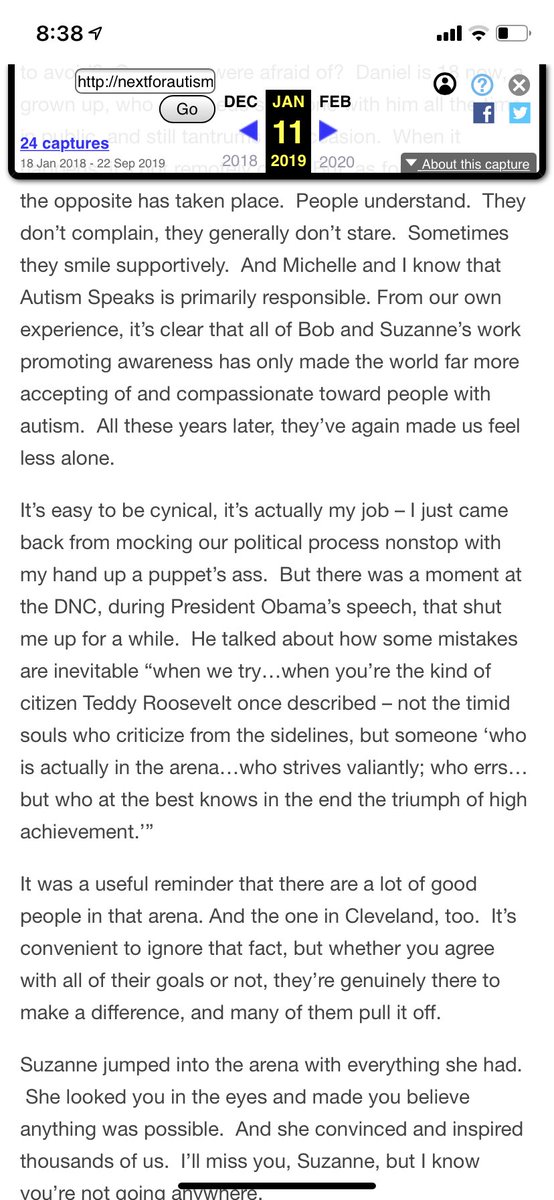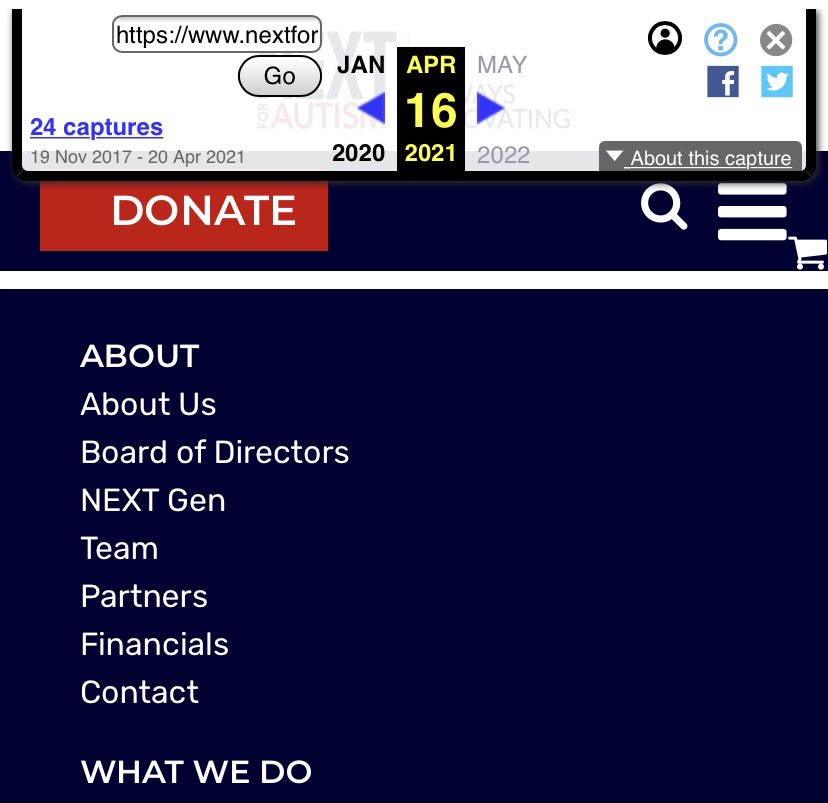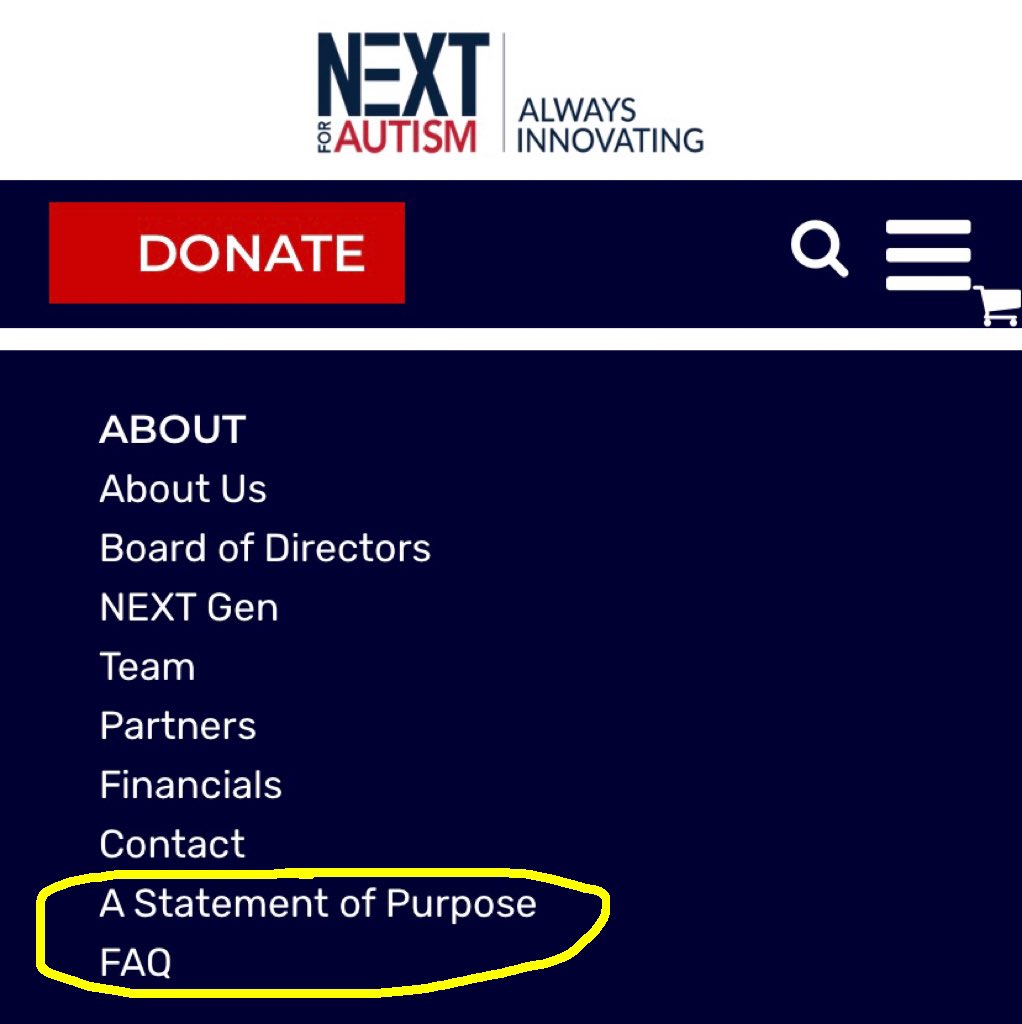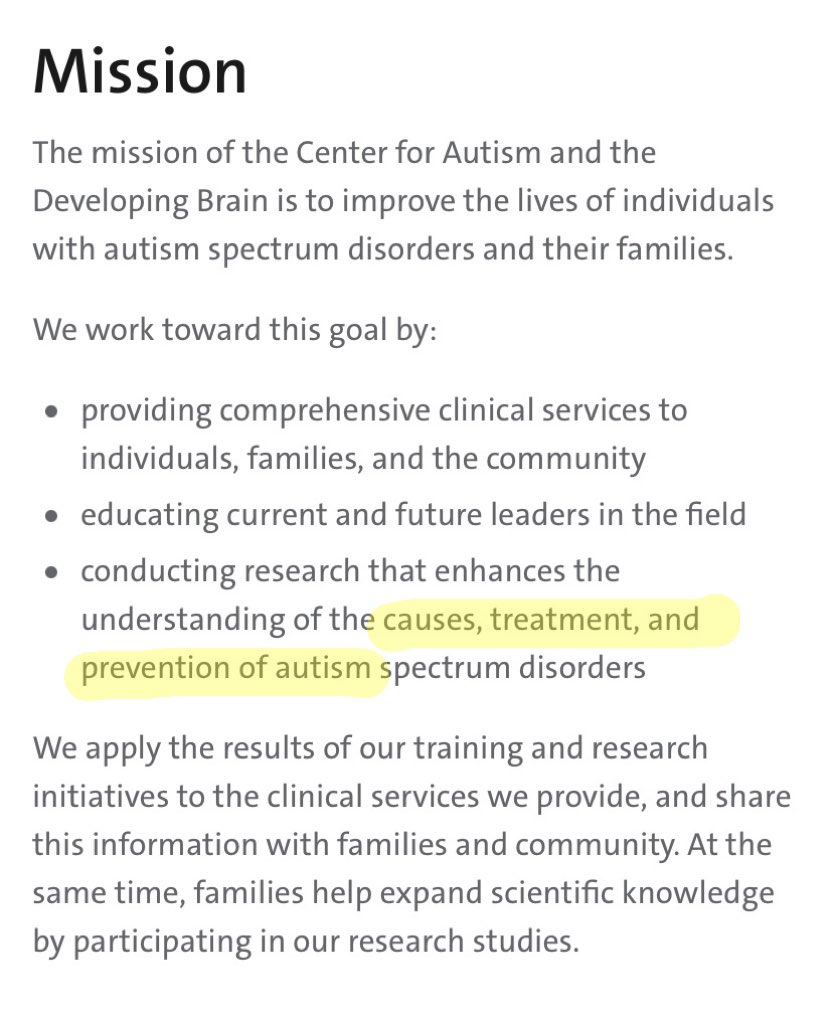
Update: I found the page where one of the board members of NEXT writes a reflection on Suzanne Wright (co-founder of Autism Speaks) in which he says:
“Acceptance isn’t the first thing on your mind [when your child starts displaying autistic traits].”
web.archive.org/web/2019011117…
“Acceptance isn’t the first thing on your mind [when your child starts displaying autistic traits].”
web.archive.org/web/2019011117…
You’ll have to scroll down for a bit but you’ll find it soon enough. It’s not very far down. You can also do ctrl+F and type “Suzanne” if that’s easier.
But in case you don’t want to go through the Wayback Machine, I took screenshots for everyone :)



But in case you don’t want to go through the Wayback Machine, I took screenshots for everyone :)




They erased this article from their website very recently, within the past few days.
It took sleuthing to unearth, but I did it. For anyone who wants to read it, it’s all here.
I am so appreciative of the Wayback Machine.
@NEXTforAUTISM, covering things up doesn’t work.
It took sleuthing to unearth, but I did it. For anyone who wants to read it, it’s all here.
I am so appreciative of the Wayback Machine.
@NEXTforAUTISM, covering things up doesn’t work.
• • •
Missing some Tweet in this thread? You can try to
force a refresh














